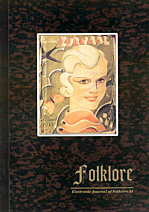Ethnographic Legacies: Niko Kuret
Ethnographic Legacies: Niko Kuret
Author(s): Ingrid Slavec GradišnikSubject(s): Customs / Folklore
Published by: Eesti Kirjandusmuuseum
Keywords: Niko Kuret; ethnology in Slovenia
Summary/Abstract: Niko Kuret was one of the most crucial personalities in Slovenian ethnology in the second half of the 20th century. Interested in a variety of subjects, he was nevertheless closest to ethnography even in the period before the Second World War. Although his ethnological research commenced in thelate 1940s, he was not able to fully immerse himself in it until his full-time employment at the Institute of Slovenian Ethnology in 1954.Rather than Kuret’s infrequent explicit statements about theoretical research in ethnography, it was his research plan that represented the basis for founding the Commission for Slovenian Ethnography in 1947, his participation in discussions about future orientations in ethnology, his organizational work, and his methodological instructions that clearly indicate what ethnography/ethnology meant to him and what purpose he saw in it. His research on social and spiritual life and culture, the methodology of which was essentially that of cultural history, expresses his principles and ideological orientation. In this respect, Kuret was an heir to ethnographic tradition. This can be seen from his methodological approach to folk culture as well as his opinion that its elements and values should be made familiar to the public. Yet as a scholar with diverse knowledge, well versed in scholarly production in Slovenia and abroad, and a participant in international scholarly discussions, Niko Kuret was able to follow, and accept, new trends in contemporary ethnology. These, however, he preferred to leave to his younger colleagues.
Journal: Folklore: Electronic Journal of Folklore
- Issue Year: 2006
- Issue No: 34
- Page Range: 57-72
- Page Count: 16
- Language: English

